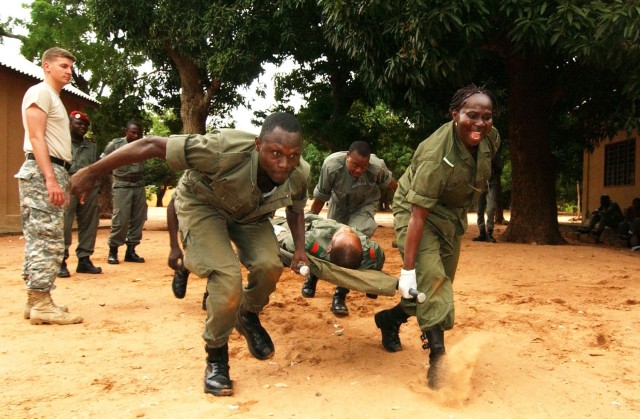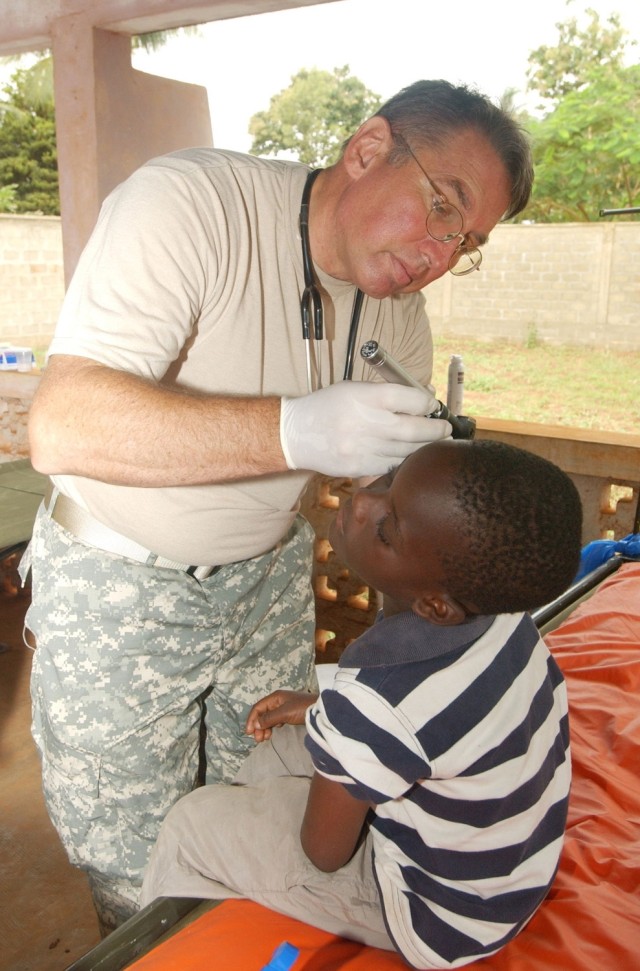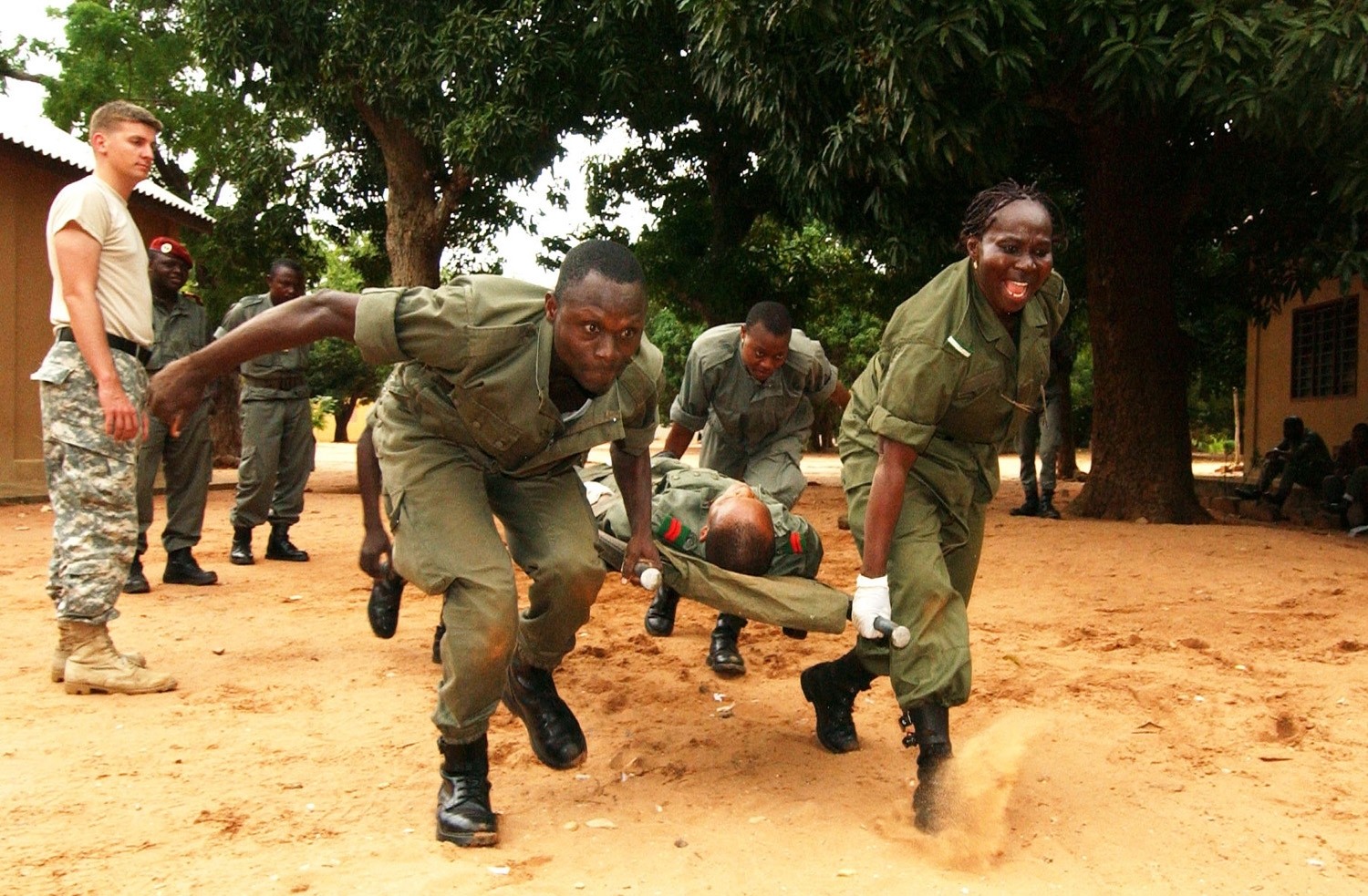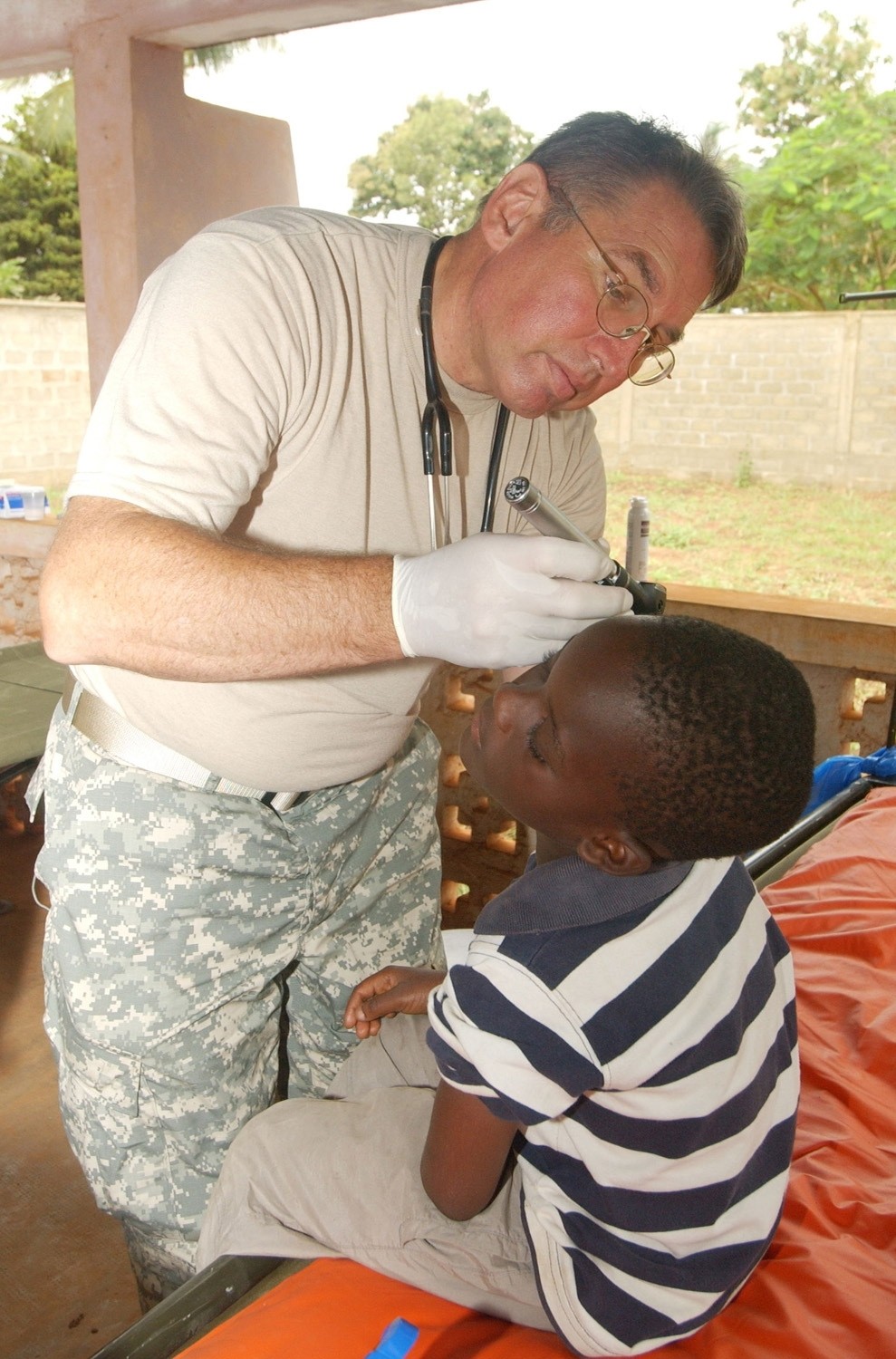COTONOU, Benin (Army News Service, Sept. 12, 2006) - When U.S. Soldiers conduct small-unit operations against hostile forces, combat lifesavers fill a critical role in keeping severely wounded comrades alive on the battlefield. It's one Soldier taking care of another.<br/><br/>In Africa, 30 newly trained foreign combat lifesavers are learning that role. But, as members of a military that lacks many resources, they also are aspiring to improve their army's health system, thanks in part to training received during MEDFLAG '06.<br/><br/>This joint-level exercise has teams of medical professionals from U.S. Army, Europe, U.S. Air Forces in Europe, Marine Forces Europe, Naval Forces Europe and reserve units traveling throughout Benin, Nigeria, Ghana and Senegal, treating residents and holding classes.<br/><br/>Benin's first class of combat lifesavers received their aid bags Friday, following two days of intensive instruction by a five-man CLS mobile training team from USAREUR's 7th Army Reserve Command.<br/><br/>"This is very important to us. We are a poor country and we do not have the ability to organize such classes," said student Lt. Hugues Gandaho, a neurosurgeon from the Benin Military Training Hospital in Cotonou.<br/><br/>With few trained specialists, Beninese medics are not directly assigned to small tactical units, Gandaho said. Only the larger organizations have medical professionals.<br/><br/>While medics are added to the battle rosters of Beninese units deployed to peacekeeping and humanitarian relief missions, they do not accompany squads or other small units on patrols, Gandaho explained. For that duty, there is an on-call nurse who responds to emergencies.<br/><br/>"We do not have enough people," the Beninese neurosurgeon said. "We cannot employ a medic with each squad."<br/><br/>Now, as they are trained, these African combat lifesavers will be assigned to smaller units, which, Gandaho said, "will start a course for the whole nation. The 30 students here will become 60 and so on. Soon we will begin to have enough."<br/><br/>Because of time constraints, the standard five-day CLS course was condensed into two days to meet the needs of the Beninese army. Instructors from 7th ARCOM tailored the course to that service's organizational structure, the types of missions it undertakes and the injuries its Soldiers most frequently encounter.<br/><br/>"We focused on trauma, blood loss, fluid dehydration and shock - the bread and butter of the Combat Lifesaver Course," said Sgt. Ian Patrick, an instructor with 7th ARCOM.<br/><br/>As more Beninese Soldiers complete the course, the army will be able to weave its medical teams with other armies' and with governmental and non-governmental health care providers such as the World Health Organization.<br/><br/>The course took place indoors and out as the team used teaching aids, medical supplies and 30 combat lifesaver aid bags. Students also received illustrated, spiral-bound books of instructions in French, Benin's official language.<br/><br/>"These initial students will take this instruction and use it as a basis for instructing their military," Patrick said. "They are going to go out and teach thousands, from what I've been told."<br/><br/>Patrick described his class of surgeons, medics and paratroopers as some of the most intelligent and motivated students he has ever instructed.<br/><br/>"They asked questions that I have never heard U.S. Soldiers ask," Patrick said. "They are taking the information, grasping it and putting it to use to meet their own needs. They are the best that I have ever taught."<br/><br/>Speaking through a translator, Beninese army Cpl. Monsia Moiseise, a nurse assigned to a military training hospital here, said he put maximum effort into the course because of his "simple desire to be a better Soldier."<br/><br/>"If you are on the field of combat," Moise said, "and the enemy is firing on you, a combat lifesaver can save lives. As Soldiers we all fight an opponent, but as combat lifesavers we are going to save the lives of our friends as well. It's all camaraderie. After that, everything else falls into place."<br/><br/>The CLS graduates will join a 50-member USAREUR medical task force and other Benin units Sept. 15 in a mass casualty exercise at the airport in Cotonou.<br/>
Combat medics help bolster Benin's medical system
By Dave Melancon, U.S. Army, Europe, Public AffairsSeptember 12, 2006




Social Sharing